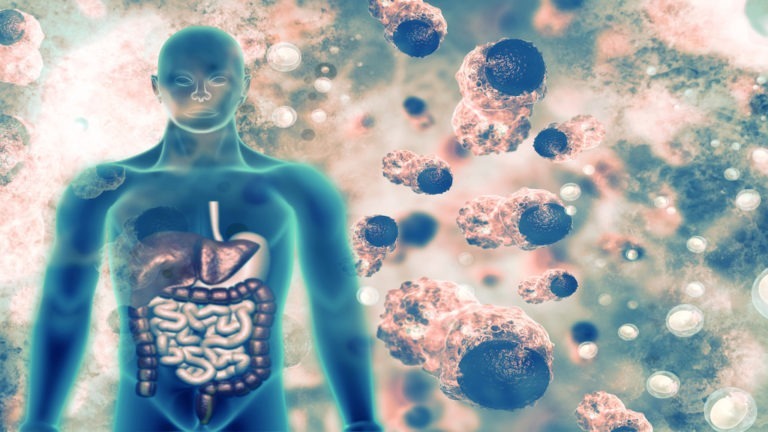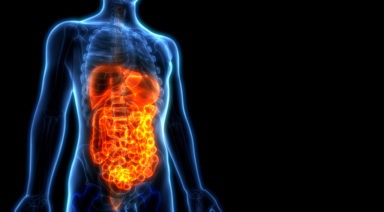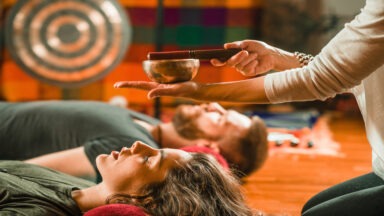To Be or Not to Be Vegan

I have never been a vegan pusher, but when the chance came to veganize my husband for 30 days, I was overjoyed that he accepted the challenge. I wanted to see how he felt, how his overall health changed and how it changed our relationship?
My husband decided to go vegan for 30 days in honor of a local festival called Vegfest, and, maybe in honor of me too. I have been vegetarian ever since he has known me (almost 20 years) and turned vegan almost 10 years ago. He nobly walked quite a few miles in my shoes and feels great as a result!
So, what were the outcomes of this 30-day adventure? Would he stay vegan? How does he feel? What were the healthy side effects of his veggie-filled lifestyle? What did he crave? Did he feel lethargic? I know many of you consider going vegan so here is the lowdown on how he feels, what it has changed in his and our lives and why you should fill your day with more veggies!
My husband was under the careful watch of Dr. Kristen Bentson who made sure he stuck to a healthy and nutritious 1800 calorie diet that included enough protein, carbs and fat to help him get through his long work days and crazy commutes into NYC! He never felt tired and often felt more full after eating his fiber-filled plant-based meals.
As a vegan, you tend to simplify your food intake since many foods have hidden dairy and other animal by-products. You end up needing to inspect each food label before eating. During these inspections, you begin to notice the many other hidden ingredients that plague our food: all the preservatives, chemicals and hidden sugars. My husband began to notice this as well. Going vegan didn’t just change his perspective on meat; it changed his perspective on food.
Overall, he feels great and better than ever, but unfortunately does not plan to stay vegan. However, he has eaten very little meat since he has had the option. He has chosen fish rather than meat and eats vegan the majority of the time except when dining out. This is a big change for us considering I always made him a meat and/or cheese filled entrée for dinner. He now realizes that vegan is a meal option not just an appetizer.
He is loving veggies and also now realizes how many calories are in many of his favorite non-vegan foods. He lost 17 pounds in 30 days! After he ate his first meal with meat, he said he felt like he was in a “food coma.” Not sure when he will subject himself to that again, but it was awesome that he realized the impact that food has on the body.
How often are we impacted by what we eat and what we put into our bodies, but blame it on other things? As fall approaches, take advantage of all the produce that will be available to you. If you are here with me on the East Coast, try a variety of apples, squashes, pumpkins, pears, carrots, beets, peaches, cucumbers, tomatoes, peppers, eggplants, concord grapes, figs, kale, broccoli, cabbage, cauliflower… Have fun with it and try to go vegan for a meal, a day or maybe longer.
Laurel Attanasio is a 500-hour certified yoga/Pilates teacher and health and wellness enthusiast who wants to help people become happy, healthy and whole. She is also certified by Jessica Bellofatto and Gina Bradley to teach Stand Up Paddle Board (SUP) Yoga. Laurel has also had the pleasure to study one on one with Sadie Nardini and travel with her as an assistant. She teaches classes locally in Bethlehem, PA, workshops nationally and retreats globally. She loves assisting her students in becoming stronger, relieving stress, preventing injury, and maintaining a healthy lifestyle. Join Laurel for her New Year, New You Yoga Retreat in Tulum. For more info visit: Website: www.laurelattanasio.com Facebook: https://www.facebook.com/LaurelAttanasioYoga
Your Body Is a Superorganism Thanks to These Microbes

Dr. Bruce Lipton, Ph.D., a pioneer in the field of epigenetics who worked as a stem-cell biologist has effectively bridged the gap between mind, body, and spirit. Of particular note is his approach to the immune system, a widely appreciated (yet poorly understood) function of the body.
We Are Made of Microorganisms
As humans, we each possess a microbiome, a community of microorganisms (such as bacteria, fungi, and viruses) that inhabit the body. Our bodies are home to about 100 trillion of these microbes, and their role in protecting us from disease cannot be overstated: They are not just necessary, but crucial, to human life on a great many levels.
Microbiome research is an emerging field in which researchers investigate how the bacteria that live in and on our bodies affect our health and states of mind. Beneficial microbes in the gut have much to do with how efficiently we can extract calories from different kinds of food, how likely we can escape colon cancer or heart disease, and even how we metabolize different kinds of drugs.
And, as Lipton teaches, these microbes regulate a wide array of aspects related to both mind and body—from the removal of toxins to gut feelings, and from sleep patterns to appetite. In fact, because of their role in the production of certain hormones such as serotonin, a deficiency in the microbiome literally affects happiness levels and may contribute to anxiety and depression.





































